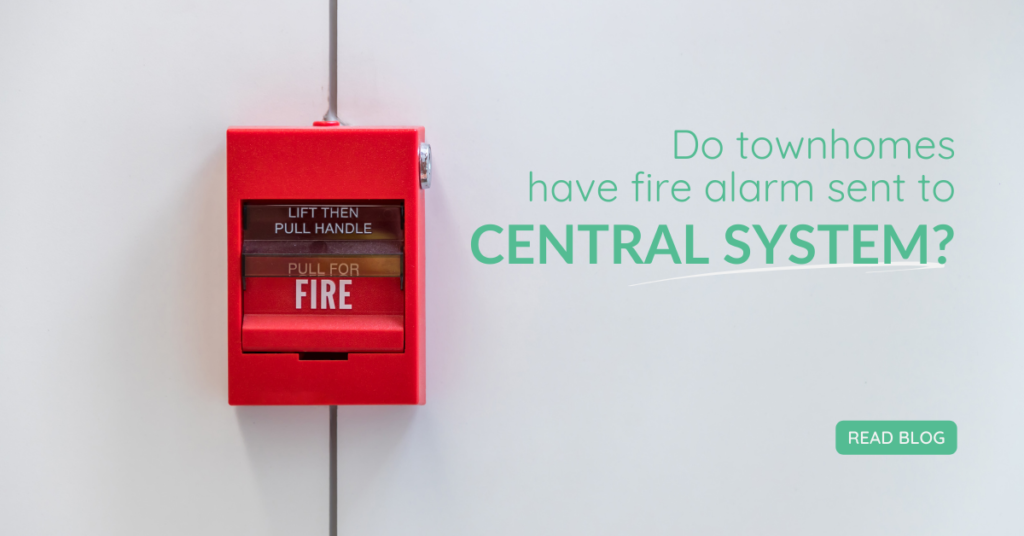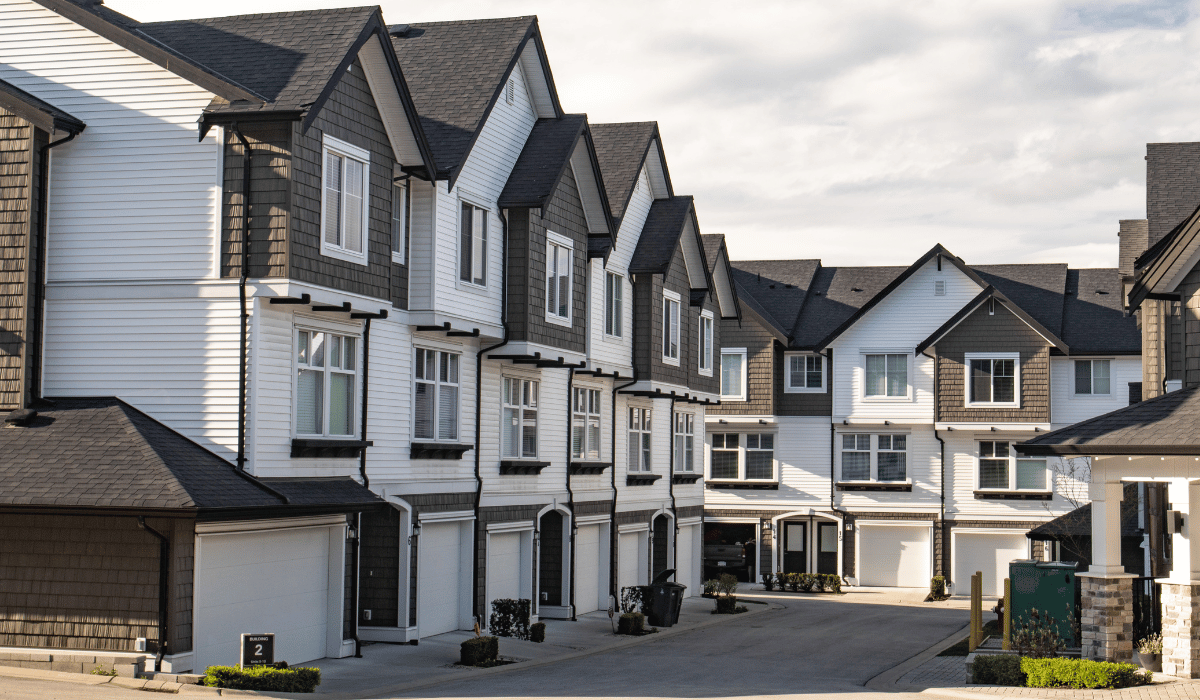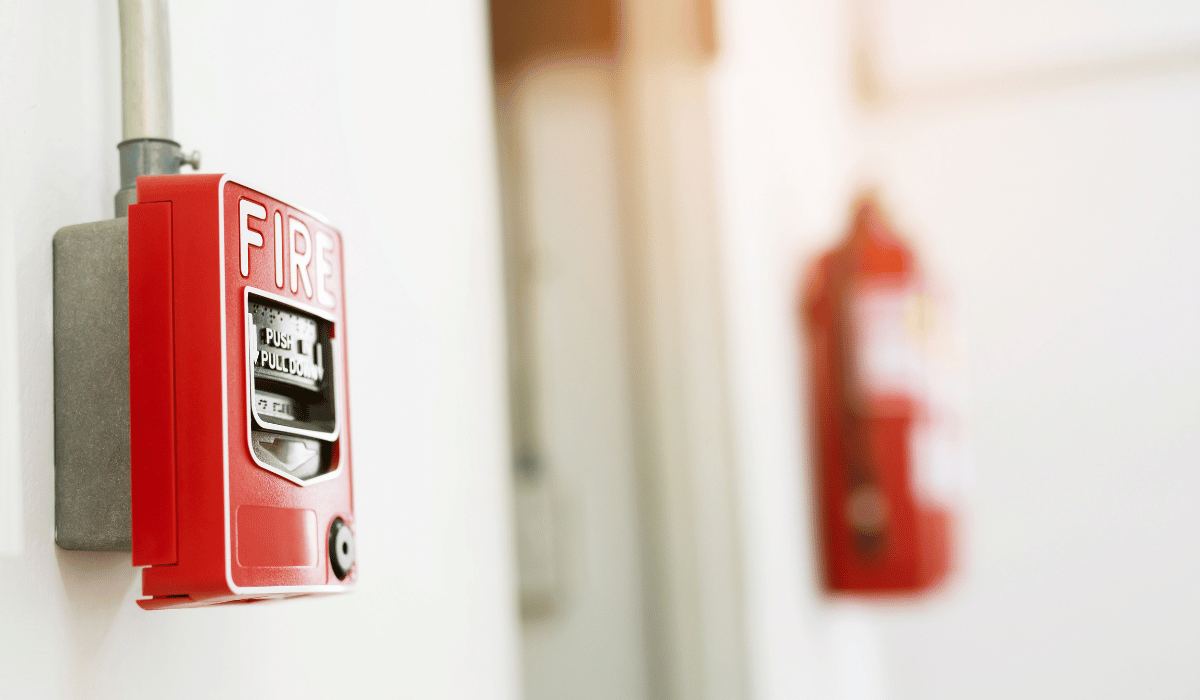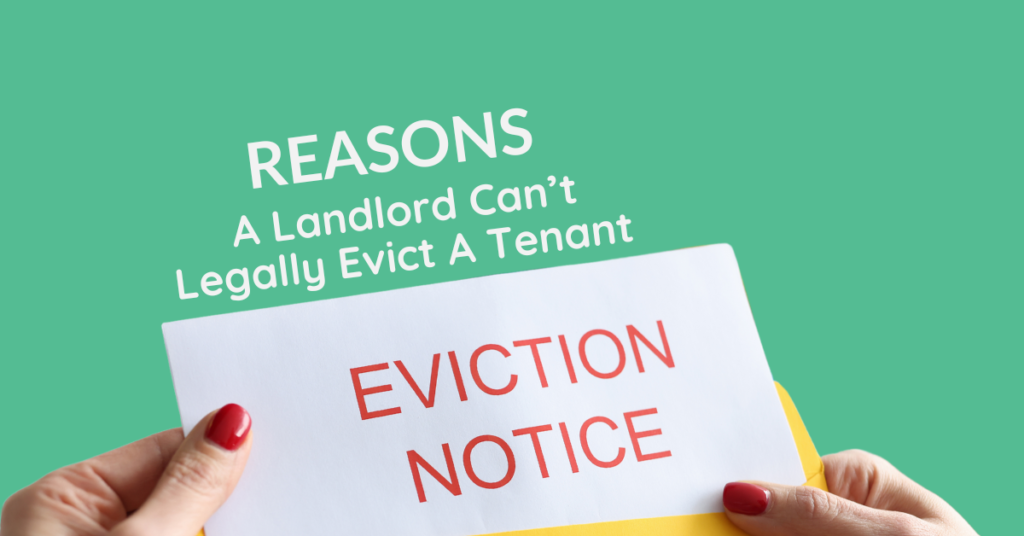Do Townhomes Have Fire Alarms Connected to a Central System?
Reading Time: 2 minutesAs a townhome owner, you prioritize the safety and well-being of your residents or tenants. Fire safety is paramount, and understanding your fire alarm system is crucial. Unlike apartment buildings with central monitoring, townhomes often operate differently. The short answer to this question is no. Typically townhomes don’t have fire alarms connected to a central…

As a townhome owner, you prioritize the safety and well-being of your residents or tenants. Fire safety is paramount, and understanding your fire alarm system is crucial. Unlike apartment buildings with central monitoring, townhomes often operate differently.
The short answer to this question is no. Typically townhomes don’t have fire alarms connected to a central monitoring system. Townhomes are considered individual dwellings, and fire code requirements usually only mandate standalone smoke detectors in each unit.
In most cases, townhome fire safety relies on standalone smoke detectors within each unit. These alarms sound only within the affected unit, alerting those inside of a potential fire. While effective for individual dwellings, it doesn’t necessarily alert neighboring units.
Exceptions to the Rule

There are a couple of scenarios where townhomes might have a central fire alarm system:
- Luxury Developments: Some newer or upscale townhome communities might boast central monitoring for fire alarms. This feature would be clearly communicated during the purchase process or by the building management.
- Local Regulations: Certain cities or municipalities have stricter fire codes. These codes might mandate interconnected alarms within a unit or even connection to a central monitoring system. Always check with your local fire department for specific regulations that might apply in your area.
Maximizing Fire Safety in Your Townhomes

Since most townhomes rely on individual smoke detectors, here are some proactive steps you can take:
- Smoke Detectors on Every Floor: Ensure each unit within your property has functioning smoke detectors on every level, including the basement (if applicable).
- Regular Testing Ensures Functionality: Schedule regular testing of smoke detectors in all units, ideally on a monthly basis. This guarantees they are in proper working order.
- Consider Interconnected Alarms: Explore installing interconnected smoke alarms within each unit. When one alarm detects smoke, all interconnected alarms in the unit will sound, giving everyone ample warning to evacuate.
- Clear Communication with Residents: Clearly communicate fire safety procedures to your residents or tenants. This includes evacuation plans, designated meeting points, and the importance of not tampering with smoke detectors.
Conclusion
If you have any uncertainties regarding your townhome’s fire alarm system, don’t hesitate to consult with your local fire department or a qualified fire alarm technician. Their expertise can provide valuable insights and ensure your townhomes are equipped with the necessary fire safety measures.
By being proactive and prioritizing fire safety, you can create a secure environment for everyone residing in your townhomes.
Need help managing your properties? Green Ocean Property Management is more than just a property manager – we take care of everything so you can relax. Don’t waste time managing your property yourself. Contact Green Ocean Property Management today for a free consultation and see how we can give you peace of mind.
What are the Reasons That a Landlord Cannot Legally Evict a Tenant? (Consequences of Illegally Evicting a Tenant)
Reading Time: 3 minutesUnderstanding the legal grounds for eviction is crucial for landlords. Evictions must follow strict legal protocols to ensure fairness and legality. Missteps can lead to severe consequences, including legal penalties and damage to the landlord’s reputation. This article explores the reasons landlords cannot legally evict tenants and the ramifications of illegal evictions. Reasons a…
Eliminating Stubborn Odors with Ozone Machines
Reading Time: 2 minutesStanding amidst the pungent odors of a space can be quite off-putting, whether it’s the lingering smell of smoke, the remnants of a party, or the aftermath of a bottle redemption facility. Thankfully, technology comes to the rescue in the form of ozone machines, which can effectively neutralize even the most stubborn and unpleasant smells….
Effective Way to Maximize Profits with Parking
Reading Time: 2 minutes According to research conducted by GoCityWide, 95% of a car’s lifetime is spent being parked making a lot of landlords invest in parking spaces for their properties. Although not everyone has parking spaces, many landlords have big open spaces in their property that can be turned into one with our help. In today’s article, we…








